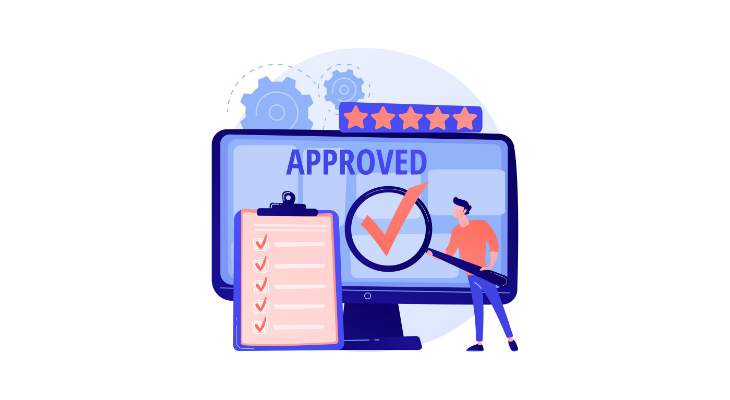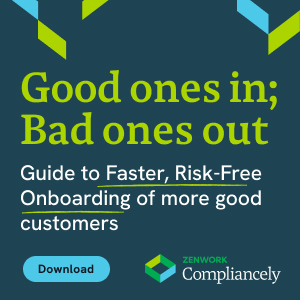
What Are Sanctions And How Do They Impact Businesses?
‘Sanctions’. This word alone scares almost every business that wants to survive in the world of competition. The economic and social impact of a sanction can be very huge, especially in the long term.
Every business that currently follows regulatory compliance protocols wants to stay away from sanctions and those who have been sanctioned.
But why?
What makes sanctions so scary?
And why do businesses strive so hard to stay away from sanctions? What is the impact of sanctions on businesses?
The following will discuss in detail all such themes with a business compliance perspective.
Sanctions: An Overview
Sanctions are primarily restrictions and/or penalties enforced on targeted individuals, groups, and even self-governing states. The fundamental mechanism of a sanction is to restrict the functionality of an activity or operation to some extent as defined by the sanctioning party.
Economic sanctions, such as the ones that the U.S. imposed on Russia in Feb 2022, are a good example.
The U.S. imposed economic sanctions to limit the Kremlin’s access to the Western financial markets. This means any business that wants to engage in commercial transactions with Russian entities and individuals will be penalized severely.
From a business compliance perspective, when a party has been sanctioned, businesses are required to comply with the sanction programs and deter away from engaging in commercial conduct with the sanctioned individual/entity.
If the business disregards the sanctions and continues to engage with the sanctioned party, the business will also be on the federal radar and could be sanctioned for aiding the sanctioned party.
This means, if you happen to disregard the current economic sanctions on Russia and continue to commercially deal with Russian entities, your business will have to bear penalties for violating the U.S. sanctions.
The U.S. sanction programs enforce and foster a healthy financial ecosystem by excluding parties (individuals, entities, groups, and countries) that threaten national security.
In order to help businesses access the list of sanctioned parties, the OFAC (Office of Foreign Account & Control) publishes the sanctioned parties list under a variety of program tags regularly.
Businesses are mandated under Anti-Money Laundering and Anti-Terrorism Financing directives to make use of these data lists and verify the identities of individuals or entities with whom they’re associating.
This compliance protocol will help businesses prevent onboarding high-risk profiles (sanctioned profiles).
Why Do Businesses Fear Sanctions?
Engaging in commercial conduct with sanctioned parties would result in financial, reputational, and civil liabilities. This includes paying penalties amounting to a minimum of $1 Million with no cap on the maximum, imprisonment, geographical restraint, operational restrictions, and so on.
For example, let’s say that your business happened to onboard ‘X’ as an independent contractor for some programming work. At the time of onboarding, in a rush to meet your business goals, you trusted X’s skills and did not conduct due diligence to verify X’s identities. You have made the payment to X for the work done and the deal is done.
However, a few days after you’ve made the payment, you may receive a letter from the federal agencies notifying you about your noncompliance conduct. The letter informs you that the person to whom you’ve paid the money is actually an absconding national from a restricted/targeted country. The federal agency (OFAC), as a consequence, will require you to pay a hefty penalty for violating the OFAC regulations and may even limit your business operations.
This might seem unlikely, but this happens more often than you think. And violating the sanctions will not only invite financial penalties but also civil liabilities. And you must trust that the implications of sanctions are swift and severe, to say the least.
For example, if a bank provides a safe haven to a terrorist, the bank will also be sanctioned and persecuted by law enforcement. In extreme cases, involved businesses can also end up being sanctioned and blocked by the federal agencies for noncompliance – limiting their operational abilities.
In most of the scenarios, due diligence is ignored and this costs businesses a lot in the long term. Even a big company like Apple was penalized for violating one of many OFAC regulations.
This just shows that no business is free to violate these very strict sanctions and businesses are mandated to comply. Compromising the contrary will lead to hefty penalties and civil assessments.
Does Noncompliance Qualify A Business For Sanctions?
It depends on the severity and the nature of the transaction and conduct. If an entity or an individual engages in any of the activities listed as non-compliant or illegal by the U.S. federal agencies, such as narcotic drugs trafficking, money laundering, terrorism financing, and related regimes, the party will be sanctioned.
Additionally, the sanction programs are administered by the OFAC, and there are a variety of sanctions programs with different tags for each cause.
The OFAC will thoroughly investigate the risks and consequences of the conduct prior to sanctioning the parties involved in a transaction.
In extreme cases, the OFAC holds the discretion to sanction any party within reason and the legal framework levied in its administrative control.
Financial Impact Of Sanctions
Businesses are likely to be penalized financially for compliance breaches with operational prohibitions. Do note that each violation will be very hefty.
In this context, let’s assume that a business happens to violate the Denied Persons List Sanctions. The DPL is a list administered by the U.S. Department of Commerce and includes the identities of individuals and entities that have been denied export privileges.
Engaging with a party on this list is strictly prohibited as it would violate the terms of its denial order. Violation of these sanctions could result in civil penalties amounting to $250,000 or twice the value of the transaction for each violation.
For criminal violations, violators may be fined up to $1,000,000 and/or face up to 20 years of imprisonment.
Repeat instances are more likely to lead a business towards permanent sanctions or bans.
Social Impact Of Sanctions
When a business is tagged ‘sanctioned’ by the U.S. authorities, the business loses all its reputational assets and goodwill.
For a large-scale company, this could mean investor pulls out, irreparable breach of trust, loss of certain privileged memberships and accreditations, adverse media coverage, higher attrition, and more uncomfortable scenarios.
For a small business, these assessments could be the end of the business.
How Compliance Can Save Businesses From Sanctions
Identity verification and due diligence, the two most important wings of compliance, enable businesses to prevent risk. Being sanctioned and engaging with someone who is sanctioned are both incompatible scenarios for a growth ecosystem.
This is why regulatory bodies, such as FATF, IRS, Department of Commerce, OFAC, and more encourage businesses to incorporate the KYC and customer identification procedures. These processes allow businesses to establish a foundational relationship with the incoming party, making way for due diligence and enhanced due diligence as may be required.
Compliance is the only way forward for businesses that want to thrive in a highly competitive marketplace. And without compliance, no matter how good your products and services may be, it will be difficult to survive if not impossible.
Sanction Screening – The Key To Prevent Sanctions
The compliance ecosystem consisting of identity verification tools, such as KYC and CIP, due diligence, and more specifically, sanction screening will help businesses with preventing risk.
Sanction screening is the process of validating the identities of a profile (person or entity) against the profiles listed in the OFAC sanctions lists, such as Specially Designated Nationals, Restricted Entities List, Blocked Persons List, and so on.
Screening a profile with sanction lists allows businesses to assess the viability of risk, its severity, and measures to reduce the aftermath of a breach.
Compliancely, an identity verification infrastructure authorized by U.S. federal agencies, enables you to verify millions of profiles against a variety of OFAC sanction lists in real-time.
The fact that Compliancely retrieves its identity matches directly from the source vouches for the accuracy of your due diligence investigations.
These insights will help you factor in the risks and arrive at an informed decision for your business operations at your discretion.
